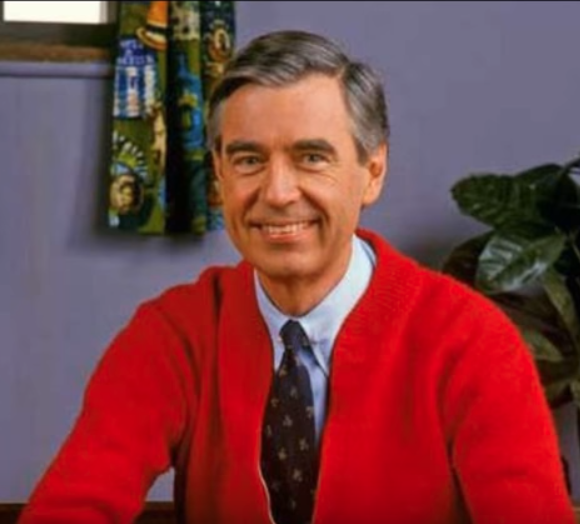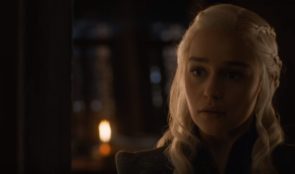Full disclosure: Gayle Kirschenbaum and I have been friends for three plus years. Still, we joke that I haven’t met “the real Gayle,” the “happy-go-lucky, cracking-everyone-up” woman she was before embarking on the deeply personal, self-financed documentary that has been the bane and bliss of her life — Look At Us Now, Mother! — starring 61-year-old Gayle and her pugnacious 92-years-young mother Mildred.
Prior to this film, Gayle had enjoyed a stellar career as an Emmy-Award winning filmmaker and creator and producer of television shows like America’s Most Wanted, Intimate Portraits and HBO’s Judgment Day: Should the Guilty Go Free. She hit gold with an HBO documentary that starred her beloved Shih Tzu Chelsea in A Dog’s Life: A Dogamentary. The enthusiastic reaction to her second autobiographical film, the short My Nose, detailing Mildred’s relentless campaign to pressure her middle-aged, never married daughter to get a nose job, convinced Gayle – whose nose remains as God created it! – to ask the always-happy-to-be-in-the-limelight Mildred to participate in an emotional cinematic journey of healing.
The result — a sometimes poignant, sometimes hilarious 84-minute film, relatable to anyone who’s survived a difficult mother — mines decades of 8mm archival footage shot by Gayle and her late father Gerald, childhood diary entries and drawings, as well as scenes of the two women doing everything from sojourning to India to taking out a Craigslist personal ad seeking a single father/son duo (undertaken because Gayle wanted some lightness in the movie) to the inevitable mother/daughter therapy session aimed at forcing Mildred to break through her wall of denial and look at the hurt she’d caused her daughter. The last scene in the documentary is an emotional one of the pair in bed together joking and communing. Happy at last. Or at least for the moment.
The film has racked up awards on the festival circuit and is now showing in theaters across the country. Check the website for a screening schedule. If you’re lucky, you’ll catch a post-screening Q & A with the pair.
Here are excerpts from my recent Skype interview with the two women who were in Mildred’s Boca Raton house while doing a round of Florida screenings.
*****
Garnet News: Mildred, what has it been like having people come up to you after watching you as ‘Mommie Dearest’ for nearly 90 minutes?
Mildred (wearing a t-shirt with a picture of a dog and her puppy, captioned Won’t You Drive My Car): One woman came up to Gayle and said, “You don’t look like you’re abused. I’m a mother like your mother!” I didn’t sexually abuse Gayle. She’s not an alcoholic or druggie. Just because I made her wear a polka dot dress doesn’t mean I was abusive.
(Note: Once Mildred is invited to speak, she can continue on in marathon fashion.)
Mildred: One woman unleashed on me in the theater lobby, blaming me outright for Gayle not being married. I asked her, “Are you married?” She wasn’t. I said, “I rest my case.” I said to the audience after one screening, “No matter what happens to the child, it’s the mother’s fault. If the child shoots someone, it’s the mother’s fault. If a child does well, it’s not the mother’s fault.
Gayle: (wearing a striped gray and white shirt, sipping coffee and sighing deeply): Mom, you got depressed when I was born because you wanted a boy. You were all set to name the baby Gary.
Mildred: I took a saliva test I saw in a magazine, and we were prepared for a boy. But I wasn’t unhappy. I was harboring German measles. Gayle has a selective memory.
Garnet News: What did you do right raising Gayle that she’s not crediting you for?
Mildred: I taught her the value of life. This is not a dress rehearsal. You come through once. Don’t look down. If the food’s not good, have an extra dessert… Too many people make themselves miserable over little things, and it’s not worth it.
Garnet News: Mildred, what was it like filming the therapy scenes in the movie?
Gayle: Do you have a question for me?
Garnet News: I’ll get to you. Mildred? The therapy?
Mildred: I knew the thoughts that were in her mind and that I couldn’t change them. And she couldn’t change me. So we were at an impasse.
Garnet News: Gayle — see, I’m getting you in the piece — how did filming the therapy scenes in the movie impact you?
Gayle: When the therapist, Dr. Pam Thompson, said I was a ‘misfit’ in my family, something clicked. I’d always known I was different but judged my parents and brothers for making me the target of everything. But now I realize my family was just clueless — they didn’t understand how I was wired — and did the best they could. I just wasn’t made to be in my family, and yet there I was.
Garnet News: Mildred, how do you feel watching Gayle work so hard to get this film in front of the public? She has sunk so much money into this, made herself physically ill reliving everything she went through as a child?
Mildred: I’m very sad Gayle has no life. She’s up till 2AM, sometimes till 4AM in the morning working.
Gayle: (Laughing): She’s suggested I join Christian Mingle.
Garnet News: Gayle, I’ve seen the film several times and am deeply moved each time. I know how difficult and yet fulfilling this project has been for you. How has it changed the mission of your life?
Gayle: Once I learned about the tragedies in mom’s childhood — her sister died when she was young; her father tried to commit suicide twice — I was able to understand her better. And able to forgive her for criticizing me from head to toe, starting at a young age. Forgiving mom renders the nasty comments she makes powerless. I see her for who she is. And I love her.
The film deeply affects people and, I hope, inspires them to make changes in their lives and to forgive the people who’ve hurt them. That is why I’m so obsessed and working like a lunatic.
Garnet News: Gayle, what are some of the things you experienced as a child that left you so emotionally wounded?
Gayle: I have two older brothers. As I said earlier, when I was born my mother expected and wanted me to be Gary. Mom constantly pulled me apart – my nose was too big; I was too skinny but if I gained a pound suddenly I was fat. Several times she pulled me by my ponytail. One time she emptied a glass of water over my head. My brothers were treated completely differently… I grew up feeling angry and unloved…
I made the film because I needed to find out what made my mom tick. After all, what could I have possibly done to become the target of such rage?
Garnet News: Mildred, there are parts of the movie that are difficult to watch like when you admit one time ordering your sons to hoist Gayle on top of the refrigerator to “get her out of the way”. So, I need to ask, is there anything you would do differently raising Gayle given what you now know about the damage your emotional abuse caused?
Mildred: I don’t know what I did wrong.
(Gayle emits a long-suffering sigh.)
Garnet News: Gayle, it doesn’t seem like participating in the film has softened your mother’s perspective. You left home at 17 to escape all the childhood traumas. What’s it been like to reopen Pandora’s box?
Gayle: The pain of crafting the documentary manifested as headaches, nausea and dizzy spells. I developed an autoimmune disease that left me with cracked, bleeding skin.
But I do enjoy the vacations mom and I have taken together. Several are in the film. When we’re on holiday – whether it’s India or Cannes – mom is adventurous and fearless, as am I. So we get to appreciate one another in a different way.
Garnet News: When you’re not on vacation, what’s it like spending all this time with her promoting the film?
Gayle: I’m ready for mom to meet a man.
Garnet News: Mildred, how many times have you seen the film?
Mildred: Enough.
Sherry Amatenstein, LCSW is a NYC-based author, journalist and therapist. Her anthology HOW DOES THAT MAKE YOU FEEL? Confessions From Both Sides of the Couch will be published in September by Seal Press.














